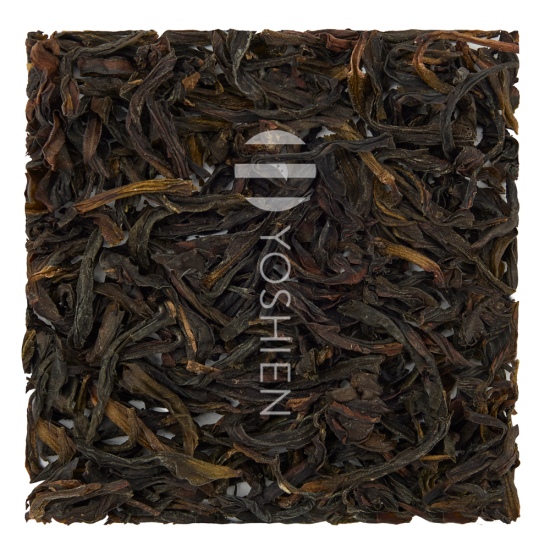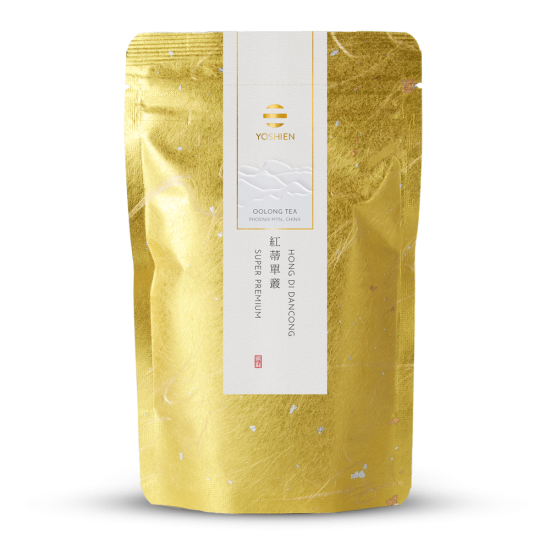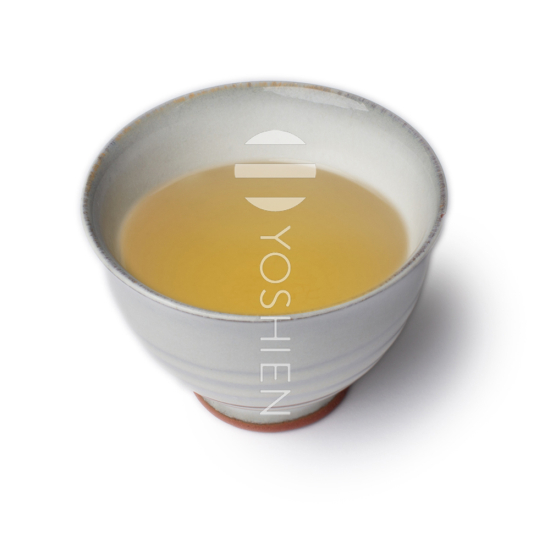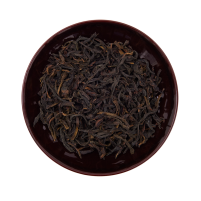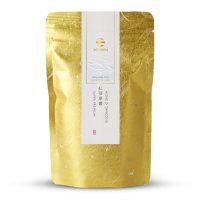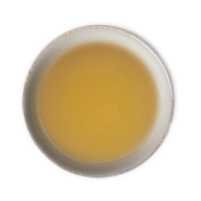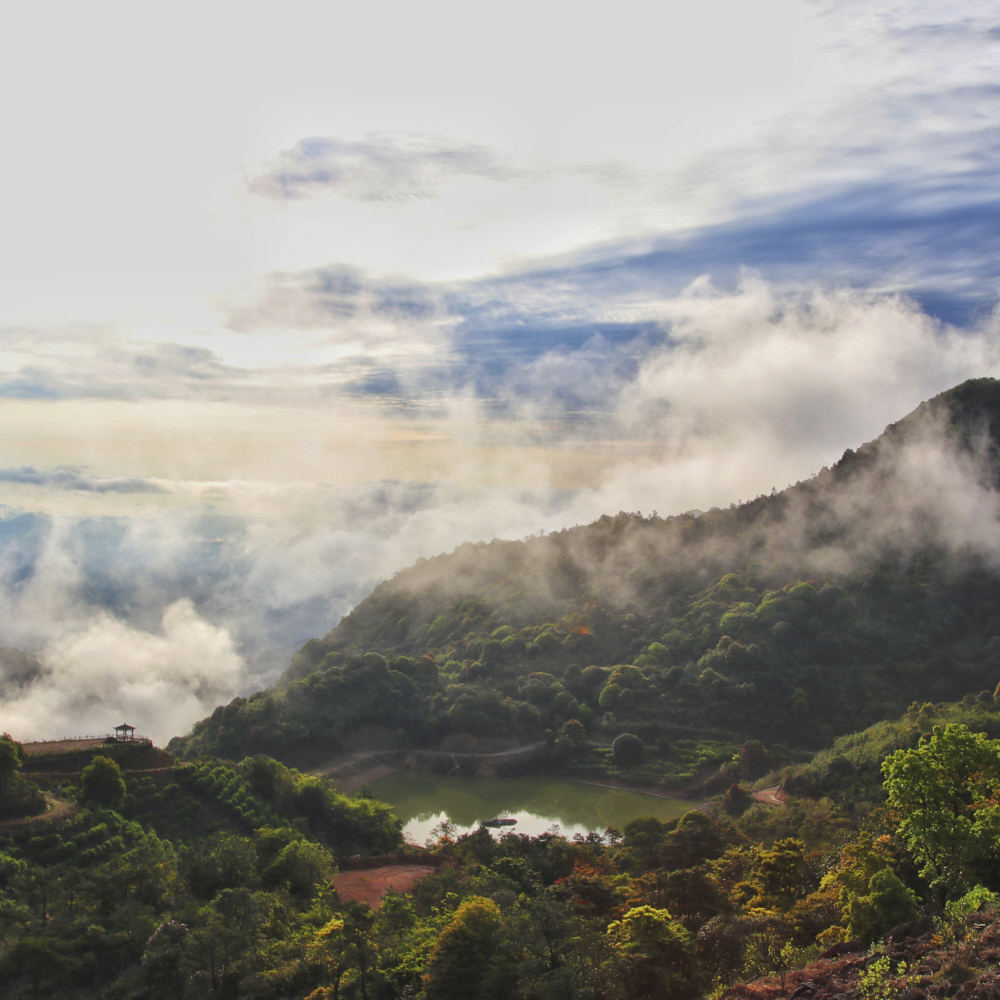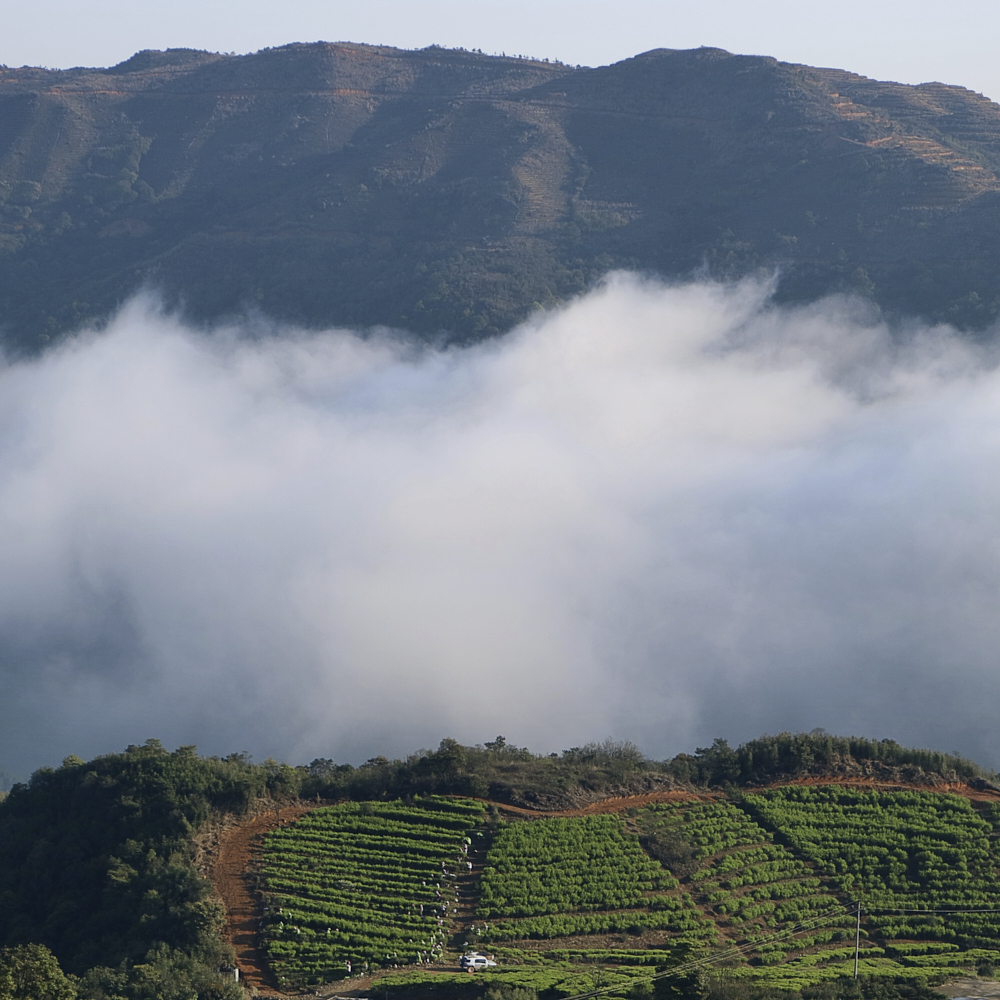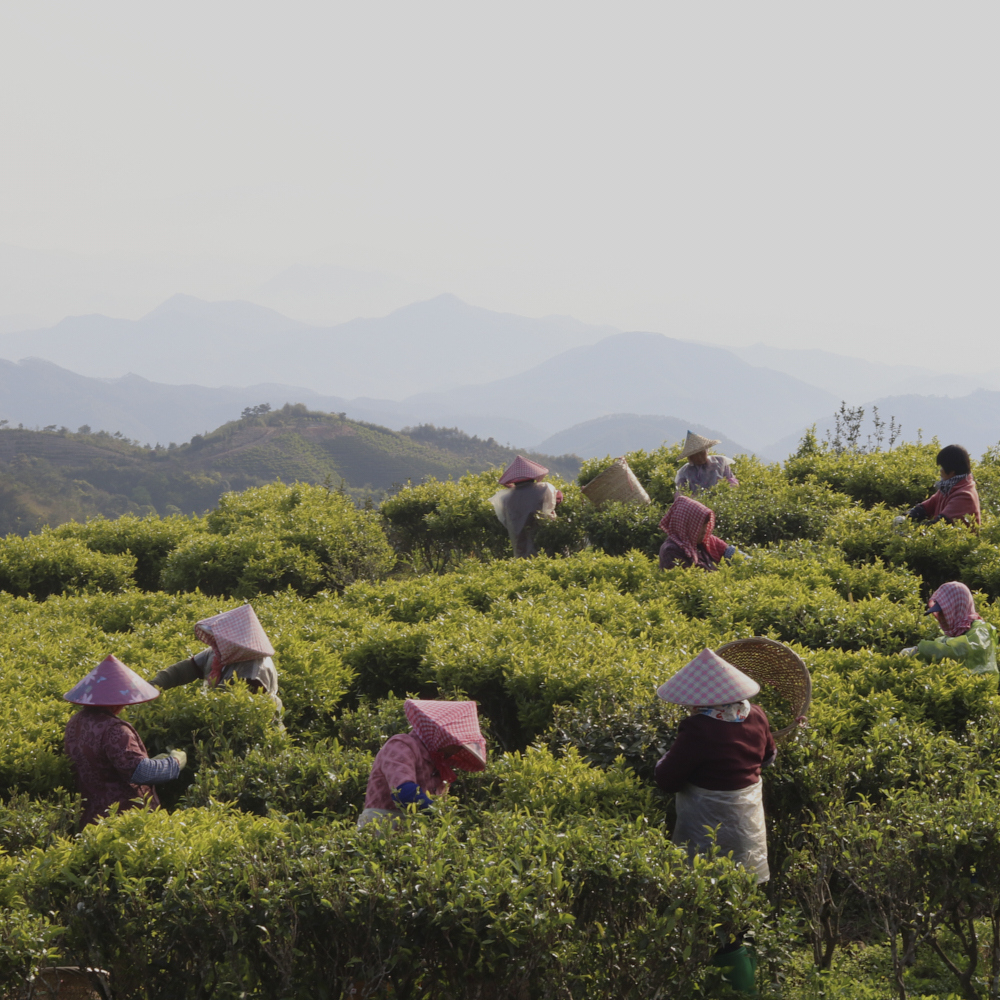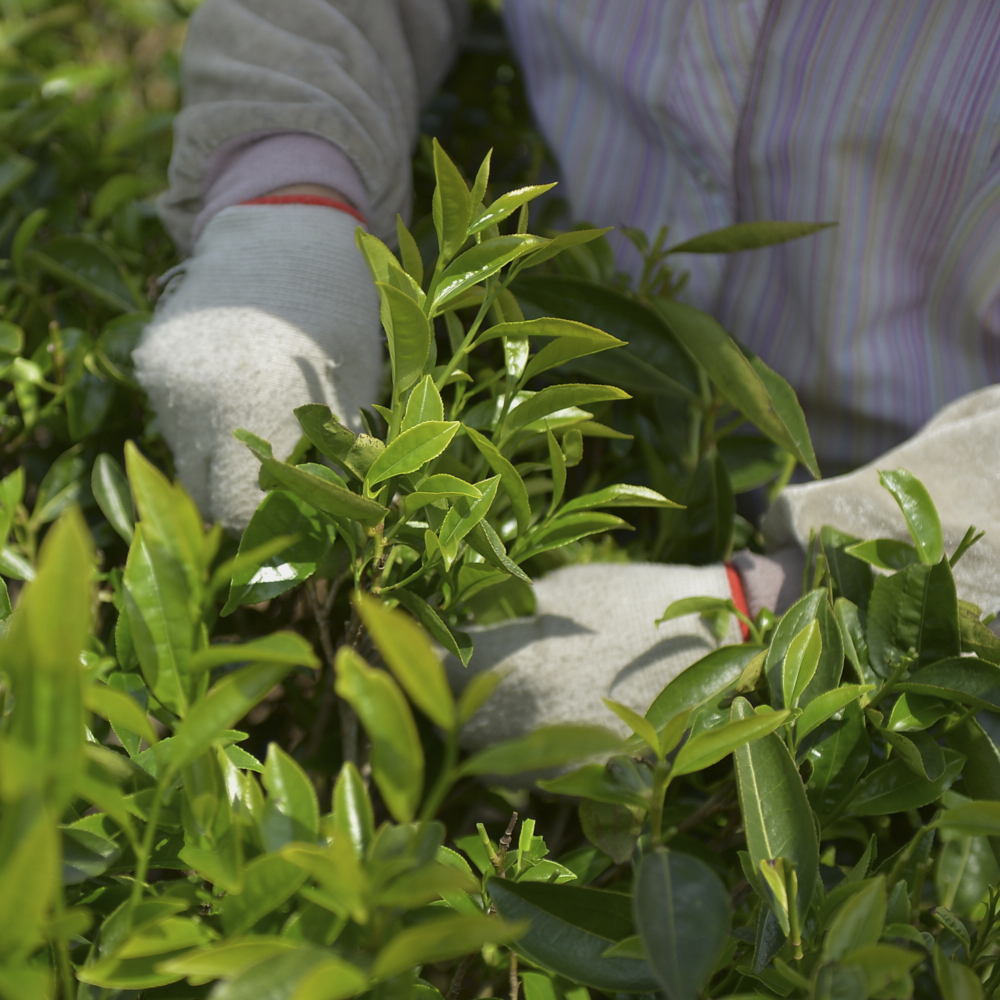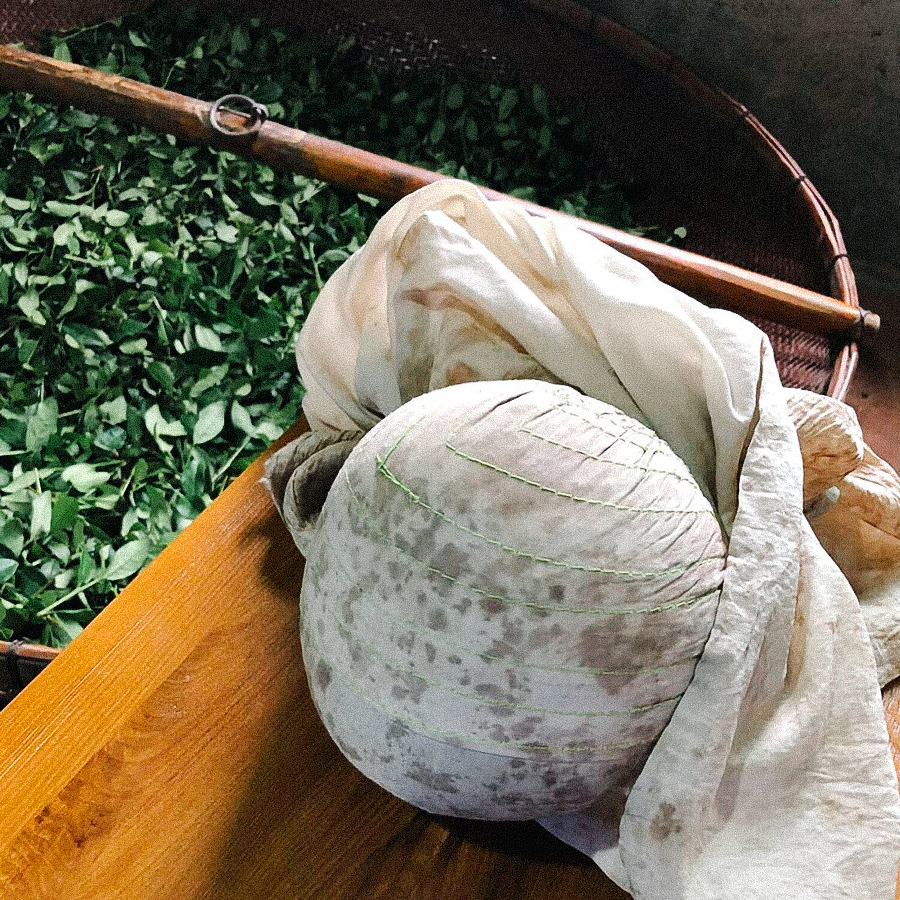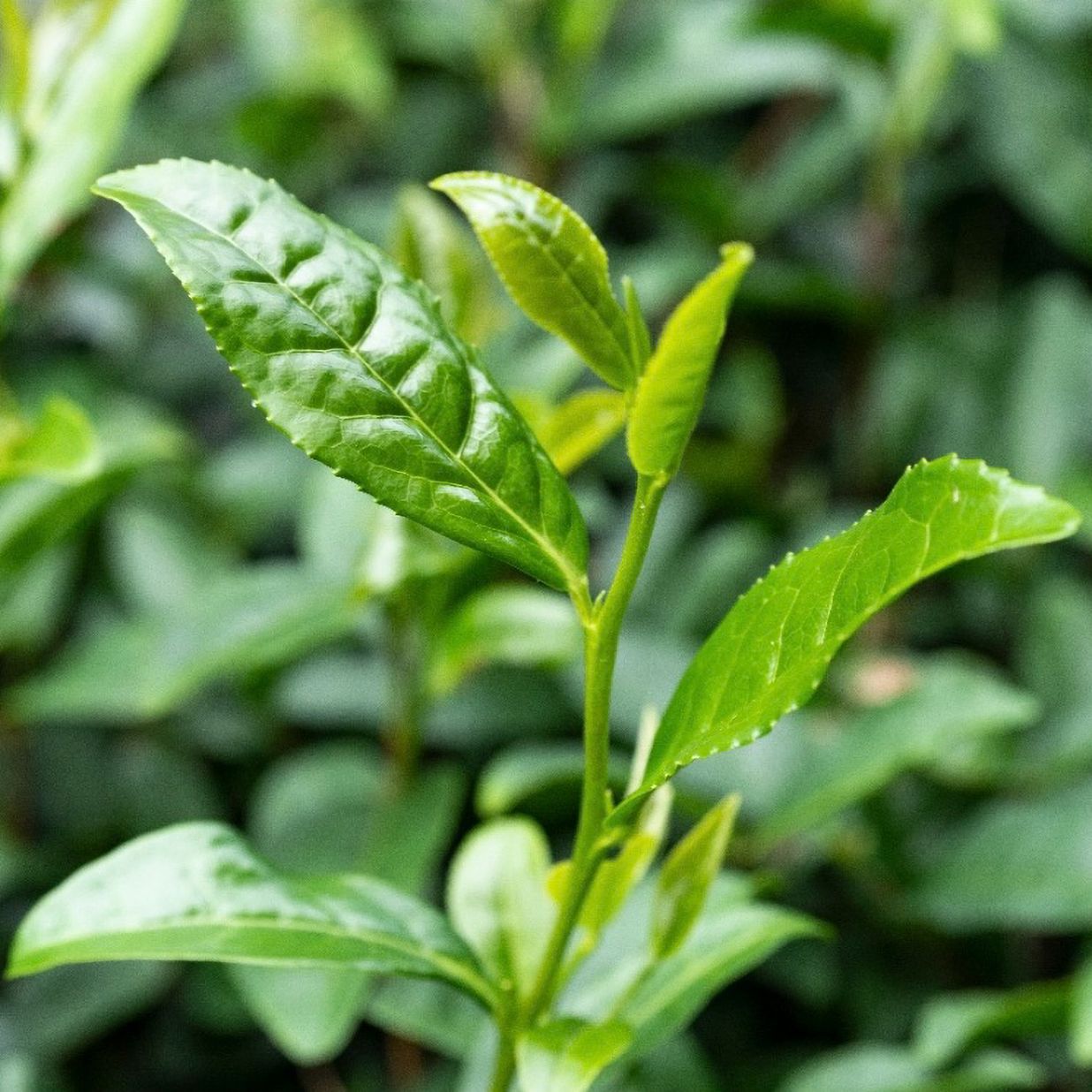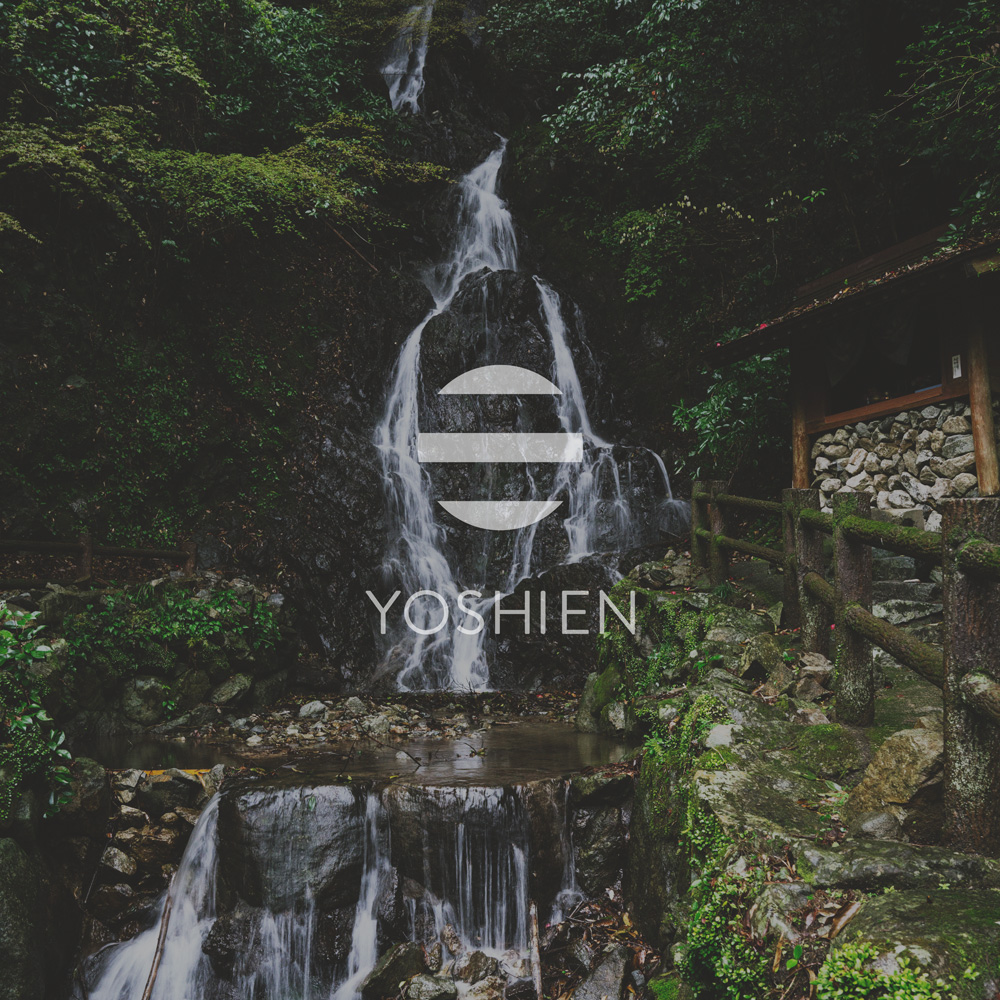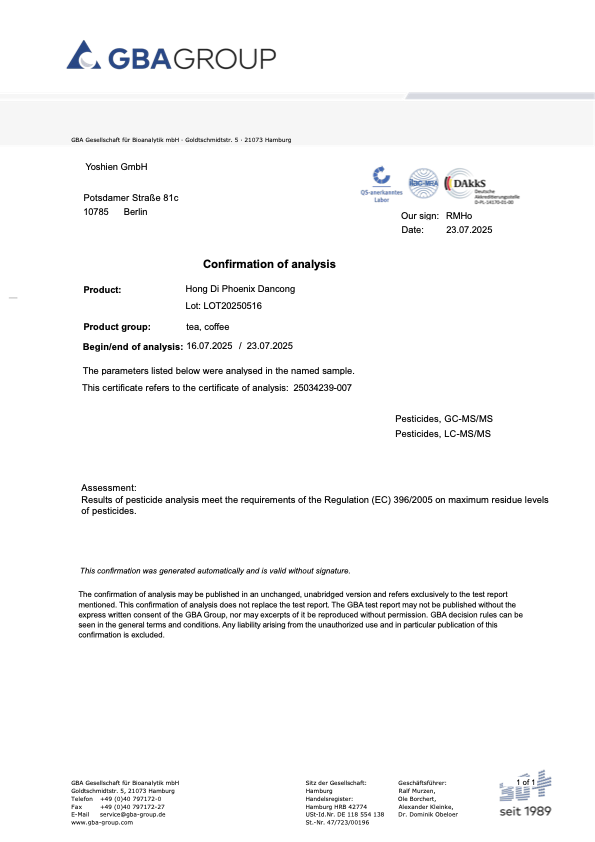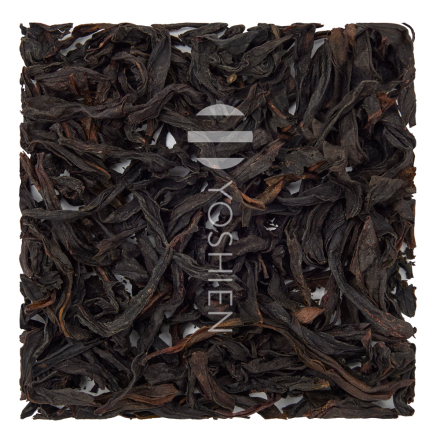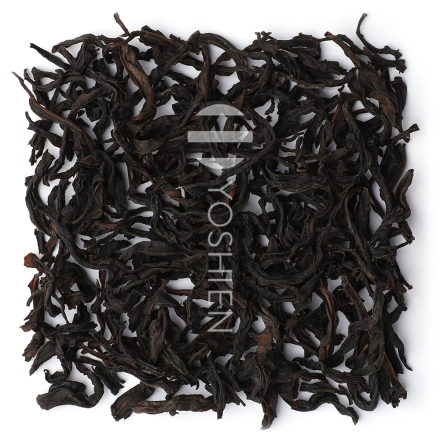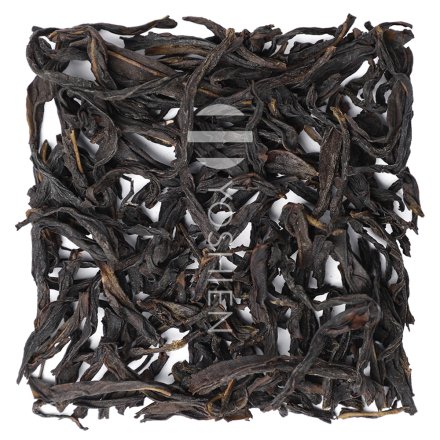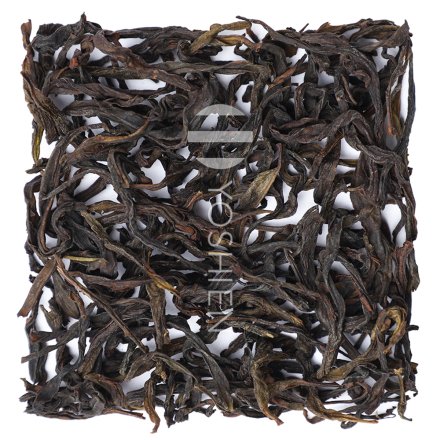Special features in location, cultivation and processing
The making of Phoenix Dancong tea follows a precise series steps:
First, the leaves are picked by hand and laid out on bamboo mats to wither naturally in the open air. This reduces their water content by about 10–15%, creating the perfect foundation for the next stages of production.
Once the leaves have softened and lost enough moisture, the oxidation process begins. Through careful but vigorous shaking, the leaf cells are broken open, allowing natural enzymes to react with oxygen. This not only gives the leaves a delicate reddish hue but also makes them noticeably sweeter. The aim is to achieve a balance of roughly 20% more heavily oxidised red leaves to 80% less oxidised ones. At this point, the tea starts to release its distinctive floral fragrance.
The leaves are then rolled using a special technique that creates their signature strip-like shape. Rolling also further breaks down the cell walls, deepening the oxidation.
Finally, roasting and heating give Phoenix Dancong its unique character. Roasting halts oxidation, preserves the transformed flavour, and enhances the natural floral sweetness with a subtle roasted note. In the finest Dancongs, this note complements rather than dominates the taste. Roasting is carried out in two stages: first an intensive roast at 130–140°C, followed by a slower roast at 90–100°C that lasts for about three hours.
Single Origin
This tea comes 100% from the above-mentioned tea fields on Phoenix Mountain, directly sourced.




